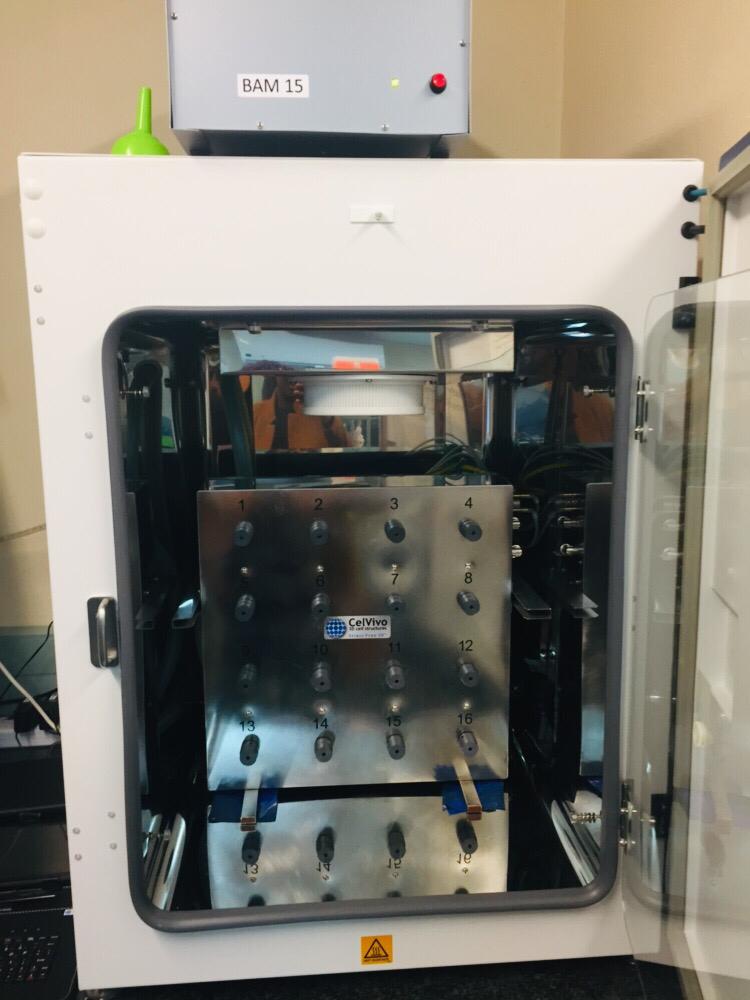For many years the world has attempted to address urgent issues in pharmaceutical research with the help of cultured cells, and the North West University’s (NWU’s) Centre of Excellence for Pharmaceutical Sciences (Pharmacen™) is using a new approach to get these answers.
They are working on advanced cell culture initiatives to grow human cells for research purposes, especially since cells cultured with the traditional methods in laboratories do not represent the human body very well.
More importantly, the researchers at Pharmacen™ have established 3D cell culture models that will help refine and reduce studies that are currently done on animals.
Until now laboratories have used human and animal cells, grown in flasks, to investigate causes of and treatments for illnesses and to test new treatments.
Pharmacen™’s new approach of moving away from growing cells in a 2D plane to cells that are grown in 3D structures is very important because the current shortcomings of 2D cell cultures is one of the main reasons why clinical tests are still being done on animals.
The centre has taken all of this to greater heights by implementing advanced 3D spheroid model technology which allows researchers to create cell models with better tissue-like structures. This also provides a more accurate representation of how the human body may react.
Above all, the 3D spheroid culture model technology provides high-throughput research with a reduction in the use of research animals.
Pharmacen™ is currently working with a company called CelVivo IVS from Denmark, and is one of the first research groups in the world using their technology.
Multi-disciplinary research
One of the centre’s main research targets is cancer research. There are a vast number of indigenous plants in Africa that are used as traditional herbal medicines, and Pharmacen™ is doing research to determine whether these herbs can assist in combating cancer.
“Few plants have reached treatment production and this is definitely something we want to further investigate and promote,” says Prof Chrisna Gouws
Better research collaboration
“One of our biggest challenges as a research entity is that, even though there are a number of research entities making use of some advanced cell culture models, we don’t know about one another.”
To address this, the South African Medical Research Council hosted an Advanced Cell Culture collaborative meeting on 27 and 28 May in Cape Town. The main purpose of this meeting was to bring together various South African research entities that use advanced cell culture models.
In attendance were delegates from the Council for Scientific and Industrial Research (CSIR), the universities of Cape Town and Pretoria, Rhodes University, the NWU and Wits. International guests from Portugal, Denmark and Mauritius also attended the meeting.
Prof Gouws says the meeting was a success and several new research collaborations were discussed. She is also establishing a Southern African society for advanced cell modelling.
Bringing stakeholders closer
She says they want the community to understand how their research are benefitting people. “We want them to realise that although research processes are slow, they will eventually change lives and impact people.”
She explains that their main focus is on drug development because most of South Africa’s drugs come from Europe. “Since these drugs are not tested in Africa and because our genetic profiles are different, it might not be as effective or even have a negative impact on our health.”
She says they also would like to encourage input from government and pharmaceutical companies.
“They need to invest more in African research and not only in European research. The 3D spheroid culture model technology is quite costly and by increasing their investment in African research, they could assist with funding.”


The CellCulture incubators
